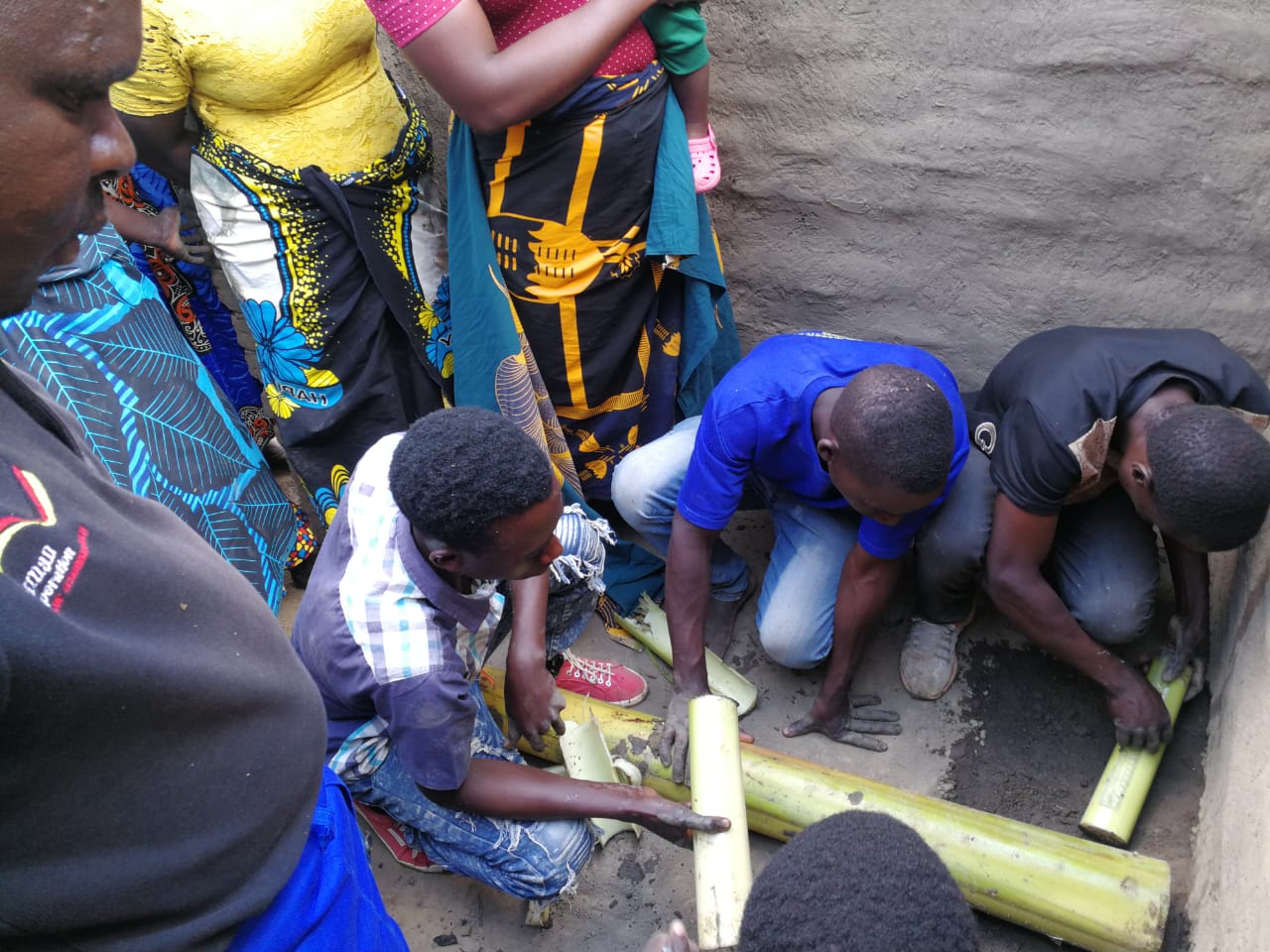Various women and youth groups have been equipped with skills on how to make different kinds of manure and energy-saving cooking stoves. These are climate adaptation strategies aimed at strengthening their resilience against climate change.
These training sessions, conducted by YICOD with support from IM Swedish Development Partner, took place in all three Group Village Heads (GVH) of Fosa, Mkhoma Wanthu 2, and Kachere, respectively, in the area of traditional authority Kachere in Dedza district.
Among other skills, these women and youth learnt how to produce Mbeya and pit manure, as well as how to make energy-saving cooking stoves (chitetezo mbaula ya pophikira patatu) which uses less firewood for cooking.
After the four-day training, Eveta Kaphamtengo, a woman from GVH Fosa, expressed her happiness about the newly introduced energy-saving cooking stoves. She noted that these stoves will require less firewood for cooking, which is particularly important since firewood is scarce in their area.
“As you can see, in this area we struggle a lot to get firewood as there are fewer trees and we don’t have community forests. We usually use maize stalks as alternatives to firewood for cooking. Now, with these newly energy-saving cooking stoves, we will be able to cook more food at the same time using less firewood. Look, these stoves have three places where we can place three pots respectively, with one hole for the firewood, so as women we are greatly helped, and the stress we usually face when gathering firewood has been reduced,” she said.
Steven Yohane, from Tikondane Youth Club in GVH Mkhoma Wanthu 2, said the training has been life-changing for him as he has learnt how to make affordable manure and stop using chemical fertilisers, which have negative effects on the fertility of the land.
“As you know, these chemical fertilisers are negatively affecting our farming lands, and they are also expensive. As a young person, I am happy that I have learnt how to make two types of manure, which are very easy and affordable to produce. I urge my fellow young people to follow this path; let’s make and use these manures. I should also mention that I will be able to earn a living by making manure, as I will produce surplus which I can sell after applying some in my farm,” he said.

Women and Youth learning how to make energy-saving cooking stoves which use less firewood
The Agriculture Extension Development Coordinator for Lobi Extension Planning Area in Dedza District, Madalitso Machira, advised the trained young people and women to share the knowledge and skills they gained with their friends. He stressed that manure is beneficial for crops, including vegetables, as they grow with all the necessary nutrients.
“Let’s produce these manures and use them. I can assure you of maximum yields, and unlike chemical fertilisers, these manure help maintain soil fertility over a longer period,” he said.
YICOD’s Project Coordinator, Reonard Emiliyo, explained that the organisation aims to improve livelihoods and build resilience to climate change by bringing about these capacity-building exercises to share knowledge and expertise.
“We believe that, despite the need to protect trees that are often cut down carelessly for firewood, the people we have trained will be able to generate income, for example, by making these cooking stoves in their homes for fellow villagers, which could earn them some money to buy basic needs or invest in small businesses. We want to see more people adopting manure use, which promotes soil fertility and results in better harvests. We also believe some will produce manure for sale, helping to improve household livelihoods,” he said.




